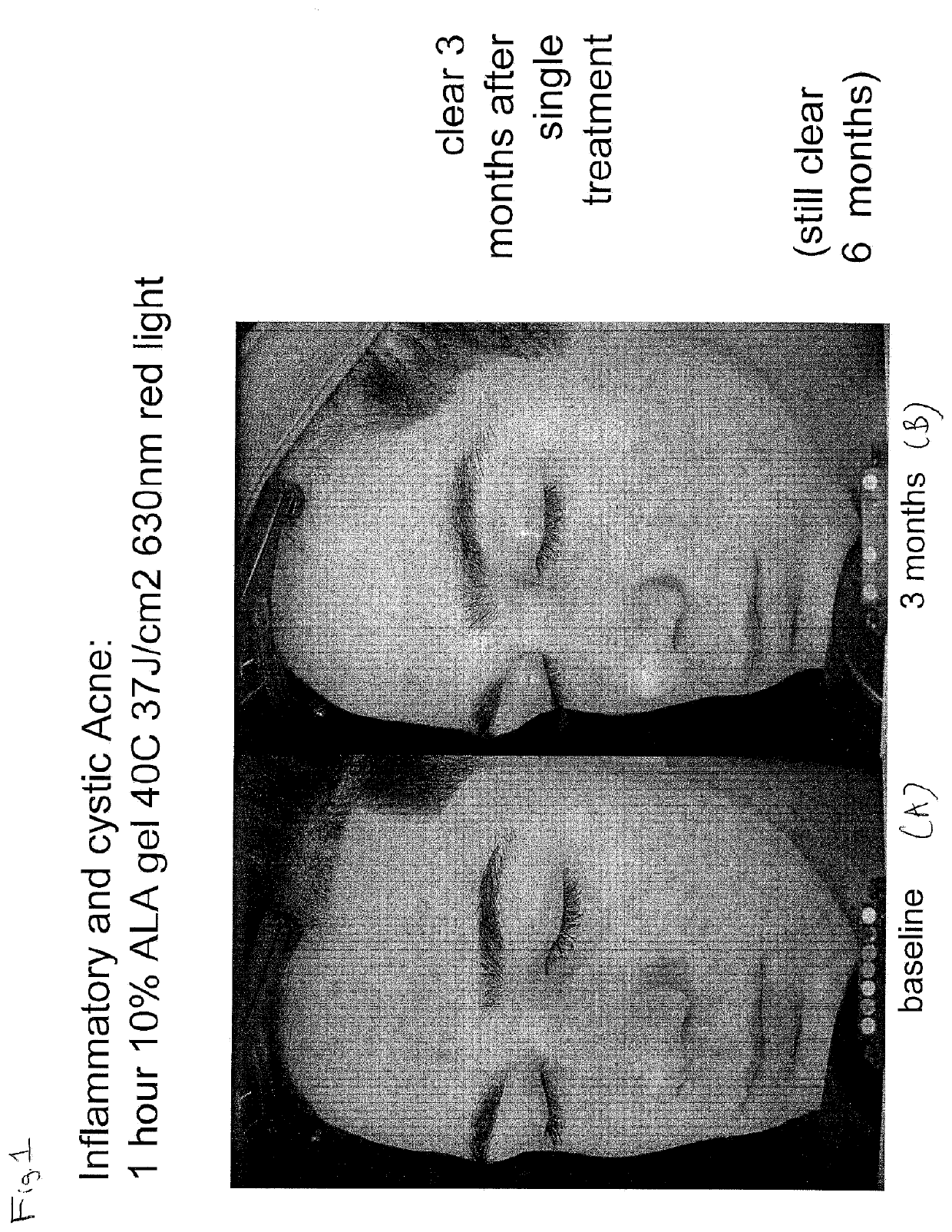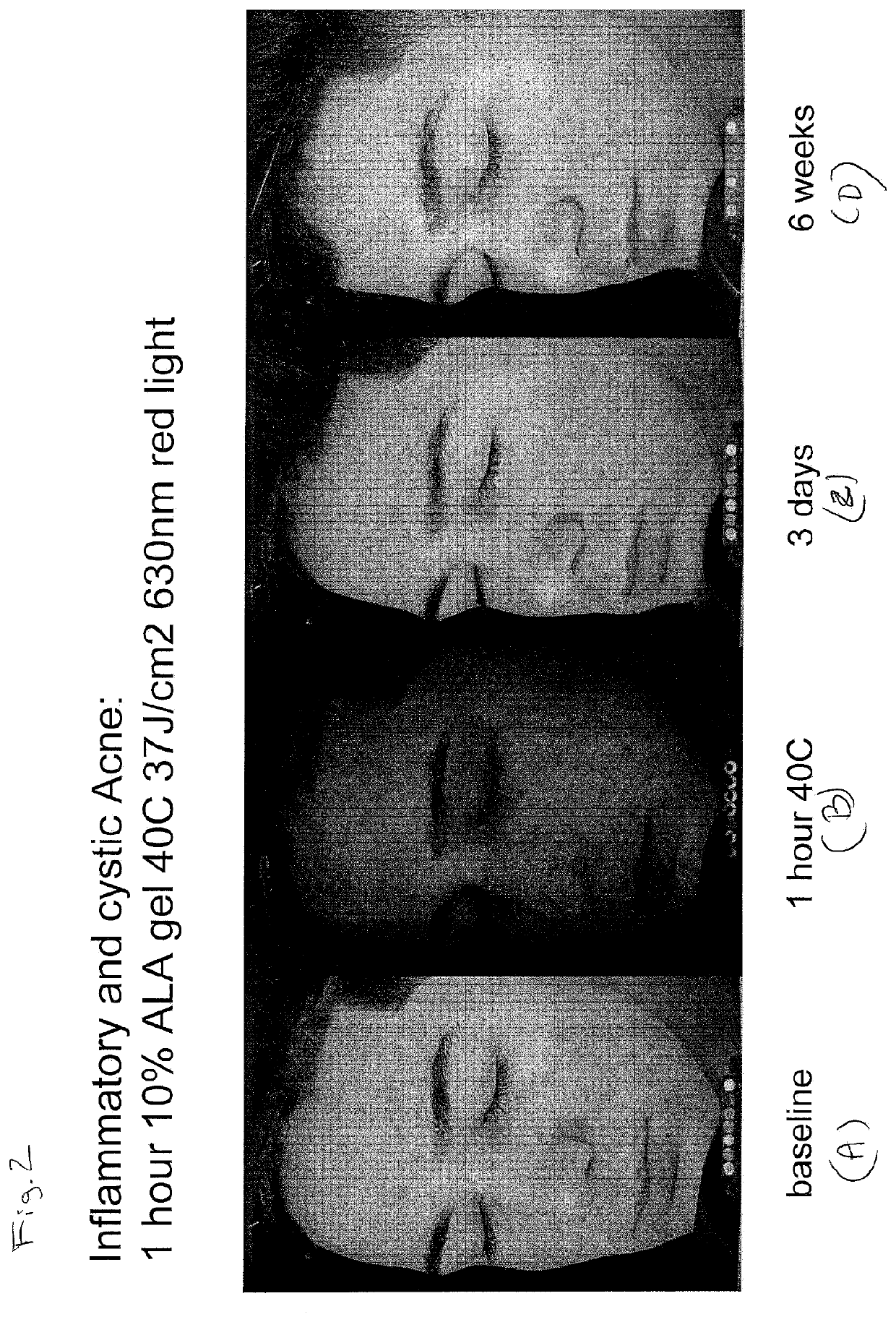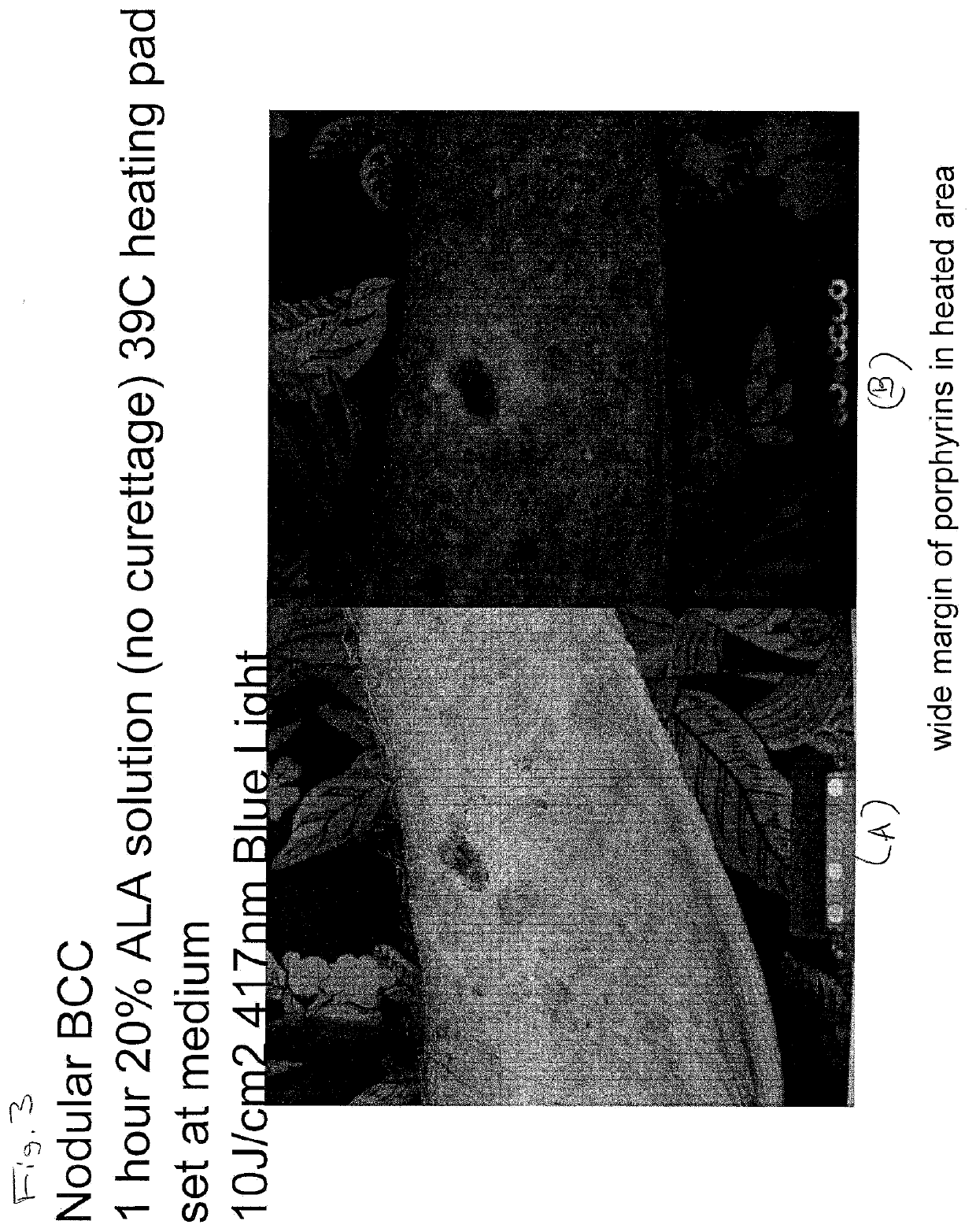Photodynamic Therapy Method for Skin Disorders
a photodynamic therapy and skin technology, applied in the direction of aerosol delivery, drug composition, therapy, etc., can solve the problems of 11 billion in productivity loss, equal health care burden, and health care costs
- Summary
- Abstract
- Description
- Claims
- Application Information
AI Technical Summary
Benefits of technology
Problems solved by technology
Method used
Image
Examples
example 1
of Inflammatory and Cystic Acne
[0296]A total of six (6) patients were treated. The affected area was treated for about one (1) hour with a warming mask at 40° C., followed by application of 10% ALA gel and 37 J / cm2 of red light at 630 nm.
[0297]The results included a mild, sun-burn like reaction, followed by pustular eruption at day 3 and 95% clear at one (1) month. The result was sustained for at least six (6) months. See FIG. 1, which shows baseline (FIG. 1A) and results (clear) at three (3) months (FIG. 1B). See also FIG. 2, which shows results at baseline (FIG. 2A), 1 hour (using poryphorin camera)(FIG. 2B), three (3) days (FIG. 3B) and six (6) weeks.
example 2
of Basal Cell Carcinoma on Extremities
[0298]Patients with nodular basal cell carcinoma were treated. The affected area was treated with a heating pad at 39° C. Each was also treated with 20% ALA gel without curettage. Blue light at 37 J / cm2 was applied at 410 nm.
[0299]A wide margin of poryphorins was detected. See FIG. 3, including FIG. 3B which shows a wide margin of pophyrins in the heated area.
example 3
of Basal Cell Carcinoma on Extremities
[0300]Patients with recurrent nodular and infiltrative basal cell carcinoma were treated. The affected area was treated with a heating pad at 40° C. Each was also treated for one (1) hour with 10% ALA gel following curettage. Red light at 630 nm of 37 J / cm2 was applied.
[0301]Results indicate that patients were clear for at least six (6) months with a single treatment. See FIG. 4, which shows baseline (FIG. 4A), one (1) year following post curettage alone (FIG. 4C) and six (6) months following treatment with PDT (FIG. 4D).
PUM
| Property | Measurement | Unit |
|---|---|---|
| Temperature | aaaaa | aaaaa |
| Fraction | aaaaa | aaaaa |
| Time | aaaaa | aaaaa |
Abstract
Description
Claims
Application Information
 Login to View More
Login to View More - R&D
- Intellectual Property
- Life Sciences
- Materials
- Tech Scout
- Unparalleled Data Quality
- Higher Quality Content
- 60% Fewer Hallucinations
Browse by: Latest US Patents, China's latest patents, Technical Efficacy Thesaurus, Application Domain, Technology Topic, Popular Technical Reports.
© 2025 PatSnap. All rights reserved.Legal|Privacy policy|Modern Slavery Act Transparency Statement|Sitemap|About US| Contact US: help@patsnap.com



